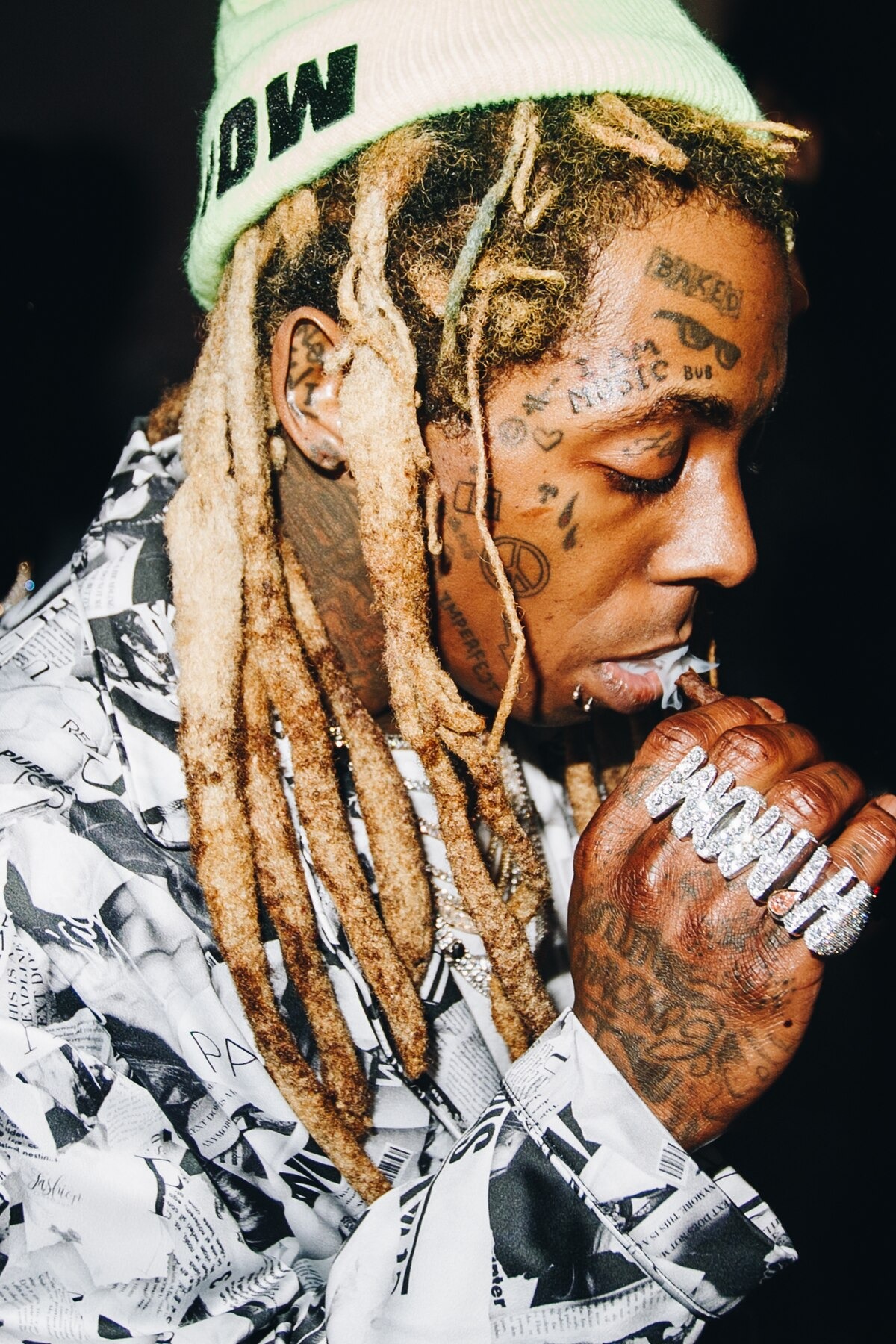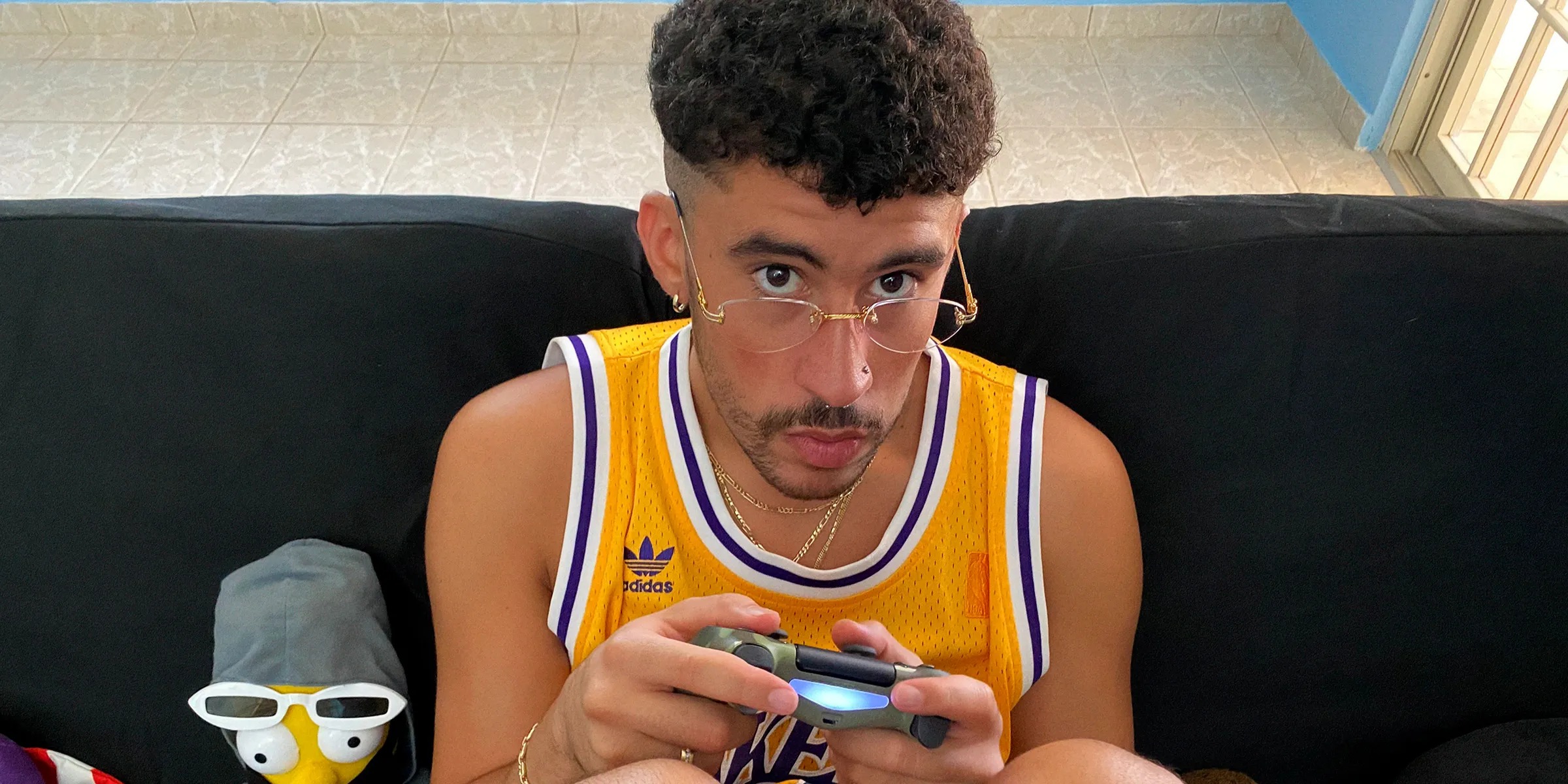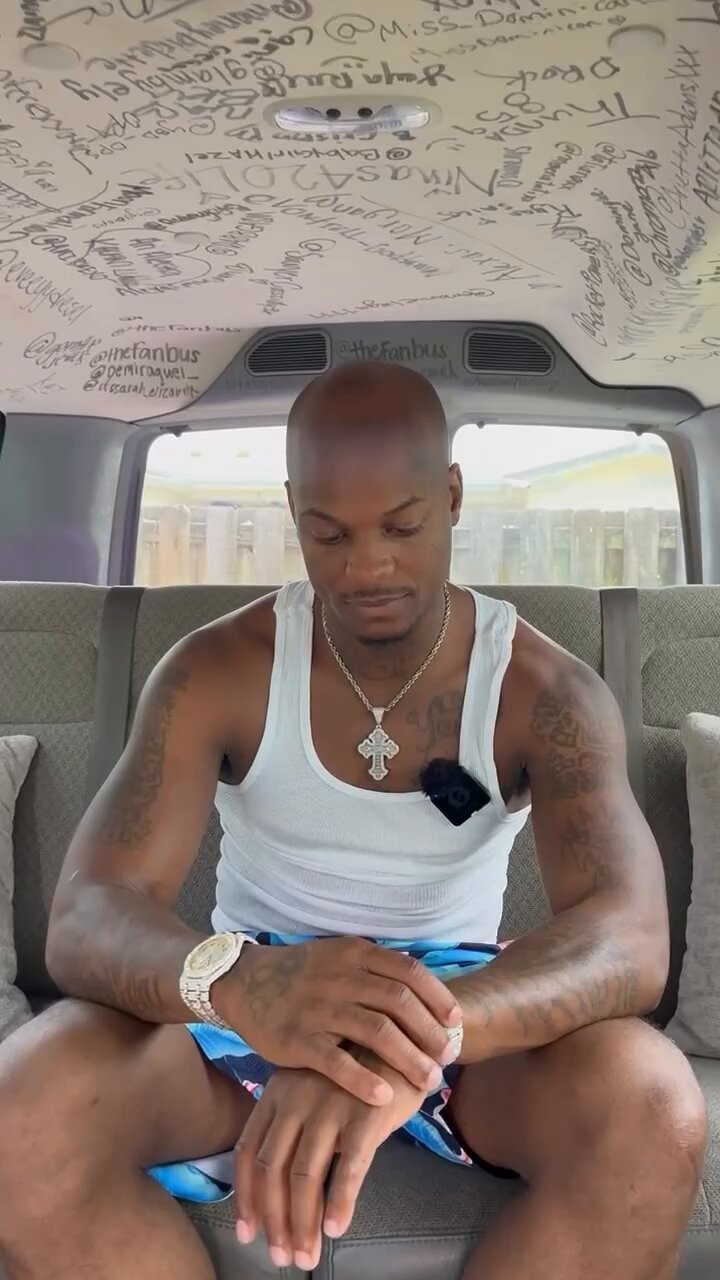In recent years, the digital landscape has witnessed an explosion of controversies involving the delicate intersection of celebrity privacy and the viral nature of social media. One incident that has sparked intense debate is the leaked fan bus video featuring Lil Woody. The video, which surfaced on major social media platforms without the artist’s consent, offers a candid glimpse into his private moments—moments that were never meant for public consumption. The controversy not only centers on the content of the video, which shows Lil Woody in an unguarded state while aboard the fan bus, but also on broader issues of digital ethics, privacy rights, and the responsibilities of media platforms. In this article, we delve into the origins, content, public reaction, and legal and ethical considerations surrounding the leak, while examining its implications for both Lil Woody and the celebrity community at large.
Background and Context
The origins of the leaked fan bus video date back to August 25, 2024, when a scheduled appearance of Lil Woody on The FanBus was promoted via the Instagram account @thefanbus.tv. This announcement was meant to build anticipation for an exclusive feature that would reveal a side of Lil Woody rarely seen by the public. However, the carefully orchestrated promotional efforts quickly unraveled when the video—capturing Lil Woody in a private setting—was illicitly recorded and distributed online.
The content of the video includes scenes where Lil Woody appears topless and engages in a range of behaviors such as casual conversation and twerking. Notably, the footage includes details such as his choice of attire, described by some as “granny panties,” which added an unexpected and controversial twist to the narrative. Social media users on platforms like Twitter and Reddit wasted no time in spreading the video, with it quickly trending and drawing thousands of views within hours.
This incident comes at a time when the public’s appetite for behind-the-scenes glimpses of celebrity life is insatiable. Yet, the line between public interest and personal privacy is becoming increasingly blurred. For Lil Woody—a figure associated with high-profile entities like the YSL label—the leak has raised questions about the extent to which a public persona can and should be subjected to invasion of privacy. As social media platforms continue to serve as both accelerators and amplifiers of digital content, the repercussions of such incidents can be swift and far-reaching.
Video Details and Content Analysis
A close analysis of the leaked video reveals a multi-layered narrative that extends beyond mere shock value. At its core, the video captures Lil Woody in a spontaneous moment aboard the fan bus. His candid display of behavior, which includes moments of humor and vulnerability, underscores the complexity of living life under constant public scrutiny. Although some viewers see the content as a mere lapse in judgment, others argue that it represents an authentic glimpse into a side of the artist rarely seen by the public.
The leaked footage lasts approximately five minutes and is characterized by its raw, unedited style. Throughout the video, Lil Woody is observed engaging in light-hearted banter and performing twerking moves—actions that, while entertaining to some, have sparked fierce debate about appropriate behavior for a public figure. The video’s informal setting—recorded on a moving bus—further complicates the narrative, as it highlights the blurred boundaries between professional promotion and private moments.

Critics of the leak argue that the dissemination of such content, regardless of its nature, constitutes a serious violation of privacy. The video was recorded and shared without Lil Woody’s consent, making it a potent example of how digital platforms can sometimes facilitate the unauthorized exposure of personal content. In contrast, some members of the public maintain that celebrities, by virtue of their public lives, implicitly accept a certain degree of exposure. Nonetheless, the manner in which the video was leaked—without warning or consent—has ignited debates on the ethical responsibilities of those who record and disseminate private moments.
Furthermore, the aesthetics of the video itself have been dissected by both fans and critics alike. The casual yet conspicuous attire choices, including the notorious “granny panties,” have become a focal point of discussion. These details, while seemingly trivial, have amplified the controversy by adding layers of humor, shock, and cultural commentary. The interplay of vulnerability and performance in the video poses important questions about authenticity, artistic expression, and the often-predatory nature of digital content sharing.
Public Reaction and Social Media Impact
The rapid spread of the leaked video on platforms such as Twitter and Reddit has created a digital firestorm that reflects the polarizing nature of public opinion in the age of social media. Reactions to the video have been as varied as they are passionate, with fans, critics, and casual observers offering their perspectives on the incident.
Many fans of Lil Woody have expressed solidarity with the artist, condemning the leak as an egregious violation of privacy. Supporters argue that regardless of what the video depicts, every individual deserves the right to control their personal narrative. In forums and social media threads, fans have rallied behind Lil Woody, calling for stricter measures to protect the privacy of public figures. Some have even called for a boycott of platforms that allow such content to proliferate, arguing that these spaces are complicit in the invasion of personal space.

Conversely, a segment of the online community has taken a critical stance regarding Lil Woody’s behavior in the video. These critics contend that the actions captured in the footage are unbecoming of a public figure and may contribute to the erosion of his professional reputation. For some, the video serves as a cautionary tale about the potential pitfalls of living a life in the spotlight, where every misstep is amplified and scrutinized by millions.
The social media impact of the leak has been profound. Trending hashtags, meme culture, and viral discussions have all contributed to the broader narrative surrounding the incident. Platforms like Twitter saw the rapid ascent of the topic as users shared their opinions, reenactments, and even satirical commentaries on the leaked footage. Reddit threads, in particular, became hubs for in-depth analysis, with users dissecting every frame of the video and debating the implications of Lil Woody’s behavior. This widespread engagement has not only amplified the reach of the leak but has also forced a reevaluation of how social media platforms handle sensitive, non-consensual content.
In many ways, the public reaction highlights a fundamental tension in today’s digital culture: the desire for authenticity and behind-the-scenes access versus the need to respect personal boundaries. The discourse surrounding the video has opened up broader discussions about digital voyeurism, the responsibilities of content creators and sharers, and the ethical limits of online engagement. As the conversation evolves, it is clear that the ripple effects of the leak extend far beyond Lil Woody’s immediate circle, touching on issues that are central to the ongoing debate about privacy and ethics in the digital era.
Privacy, Legal, and Ethical Considerations
At the heart of the Lil Woody fan bus video controversy lie critical issues of privacy, legality, and ethics. The incident raises several important questions about consent, the legal ramifications of unauthorized recordings, and the ethical responsibilities of both individuals and digital platforms.
One of the most pressing concerns is the question of consent. In the case of the leaked video, there is significant uncertainty regarding whether Lil Woody was aware that he was being filmed—and, more importantly, whether he had consented to the recording and subsequent distribution of the footage. Legal experts argue that if the video was recorded without his explicit permission, the individuals responsible could be subject to legal action under privacy laws that protect personal rights. The lack of consent not only renders the leak legally problematic but also morally indefensible, as it constitutes an invasion of personal privacy.

Beyond legal implications, the ethical dilemmas posed by the leak are profound. In an era where digital content can be shared instantaneously and without accountability, the responsibility of content distributors comes into sharp focus. Social media platforms that host or enable the rapid spread of such videos are increasingly being scrutinized for their role in facilitating these invasions of privacy. Ethicists argue that while public figures might accept a certain degree of scrutiny, this does not extend to an unconditional waiver of their right to privacy. The incident, therefore, calls for a reevaluation of the norms that govern digital sharing and a reassessment of the boundaries between public interest and personal dignity.
Moreover, the controversy underscores the broader cultural implications of voyeurism in the digital age. The unbridled sharing of leaked content not only compromises the privacy of those involved but also perpetuates a culture of sensationalism where the private lives of individuals are commodified for entertainment. The case of the Lil Woody fan bus video is emblematic of this trend, serving as a wake-up call for both policymakers and the public. It forces us to confront uncomfortable questions about the balance between freedom of information and the right to personal privacy, and it challenges the notion that being in the public eye justifies the erosion of one’s private life.
Finally, the incident has sparked calls for stronger regulatory frameworks to protect individuals from non-consensual recordings and leaks. Lawmakers and industry leaders are now grappling with the need to update existing privacy laws to address the challenges posed by new digital technologies. The debate is not only about punitive measures for those who breach privacy but also about proactive measures to ensure that public figures—and indeed all individuals—are afforded adequate protection in an increasingly interconnected world.
Lil Woody’s Response and Industry Implications
Following the leak, Lil Woody’s immediate reaction was to place the blame on state mechanisms, suggesting that the incident was the result of systemic failures in security protocols. His public response, though brief, indicated a deep sense of betrayal and frustration. By holding the state responsible, Lil Woody highlighted a broader issue: the vulnerability of public figures to unauthorized surveillance and data breaches. This reaction resonated with many of his supporters, who saw it as an acknowledgment of the inherent risks associated with living a life under constant public scrutiny.
From an industry perspective, the incident has far-reaching implications. Lil Woody’s association with the prestigious YSL label places additional pressure on both the artist and his management team. For the label, the leak represents not only a reputational risk but also a call to action regarding the implementation of more stringent privacy protections. The controversy serves as a stark reminder that the digital age has transformed the landscape of celebrity, where personal moments can be weaponized and circulated without warning.

In response to the incident, industry insiders have begun advocating for a multi-pronged approach to address the challenges posed by digital privacy breaches. This includes investing in enhanced security measures for events, developing clear guidelines for content sharing on social media platforms, and providing legal support for victims of unauthorized recordings. Lil Woody’s experience, as painful as it has been, may serve as a catalyst for much-needed change in how the entertainment industry navigates the complexities of modern digital communication.
Moreover, the fallout from the leak has sparked a broader debate among celebrities about the limits of public exposure. Many public figures are now reassessing their digital strategies, questioning whether traditional promotional methods are adequately equipped to protect their private lives. The incident has also shone a spotlight on the ethical responsibilities of social media platforms, prompting calls for greater transparency and accountability in how they handle sensitive content.
The ripple effects of Lil Woody’s response are likely to be felt across the industry. As more voices join the chorus calling for enhanced privacy protections, there is hope that this incident will lead to more robust legal frameworks and better safeguards for public figures. The controversy thus not only affects Lil Woody personally but also serves as a case study for the entire entertainment ecosystem, highlighting the urgent need for reform in the way digital privacy is managed and protected.
The leaked Lil Woody fan bus video stands as a potent reminder of the double-edged sword that is digital media. On one hand, the incident has provided an unprecedented look into the life of a celebrity, fueling public debate and sparking discussions about authenticity and vulnerability. On the other hand, it has raised serious questions about the rights of individuals in a digital era where privacy is constantly under siege. As we look to the future, several key lessons emerge from this controversy.
Firstly, the incident reinforces the urgent need for clear and enforceable privacy laws. In an age when content can be shared globally within seconds, traditional legal frameworks must evolve to protect individuals from unauthorized exposure. The responsibility does not lie solely with the perpetrators of such leaks; social media platforms, event organizers, and even state institutions must also take proactive steps to safeguard personal data and ensure that privacy is respected.
Secondly, the controversy underscores the importance of digital literacy and ethical content consumption. For fans and casual observers alike, the case serves as a reminder that the act of sharing sensitive content has real-world consequences. The debate around Lil Woody’s leaked video has brought to light the need for a cultural shift—one that prioritizes respect for personal boundaries over the pursuit of sensational content. As public discourse continues to evolve, it is hoped that increased awareness will lead to more thoughtful and responsible engagement with digital media.
Finally, the future of celebrity privacy may well depend on the industry’s ability to innovate and adapt. For artists like Lil Woody, the challenge lies in finding a balance between engaging with fans and maintaining control over their personal narratives. The fallout from the leak has catalyzed discussions about new models of digital promotion that do not compromise privacy. It is likely that in the coming years, we will see more robust partnerships between celebrities, technology providers, and legal experts aimed at creating safer digital environments for personal content.
In summary, the Lil Woody fan bus video controversy is emblematic of the broader challenges faced by celebrities in today’s digital age. It brings to the forefront the need for a balanced approach that respects both the public’s curiosity and an individual’s right to privacy. While the incident has undoubtedly caused personal and professional strife for Lil Woody, it has also ignited a necessary conversation about the ethical, legal, and cultural dimensions of digital privacy. As stakeholders across the industry work to address these issues, there is hope that the lessons learned from this controversy will lead to lasting changes in the way digital content is managed and protected.
Looking ahead, the evolution of digital technology is certain to present new challenges—and opportunities—for privacy and personal autonomy. For public figures, the path forward may involve embracing new strategies for engagement that prioritize both authenticity and security. For society as a whole, the incident serves as a clarion call for greater respect for personal boundaries and a reexamination of the ethical practices that underpin our digital interactions. Ultimately, the legacy of the Lil Woody fan bus video will be defined not just by the controversy it sparked, but by the collective efforts to create a more secure and respectful digital future.
In conclusion, the controversy surrounding the leaked fan bus video featuring Lil Woody encapsulates many of the complex dynamics at play in the digital age—from the rapid dissemination of content via social media to the intricate balance between public interest and personal privacy. As this case continues to unfold and prompt debate, it provides a vital opportunity for all stakeholders—celebrities, industry leaders, lawmakers, and the general public—to reconsider and redefine the norms of privacy in our increasingly interconnected world.

